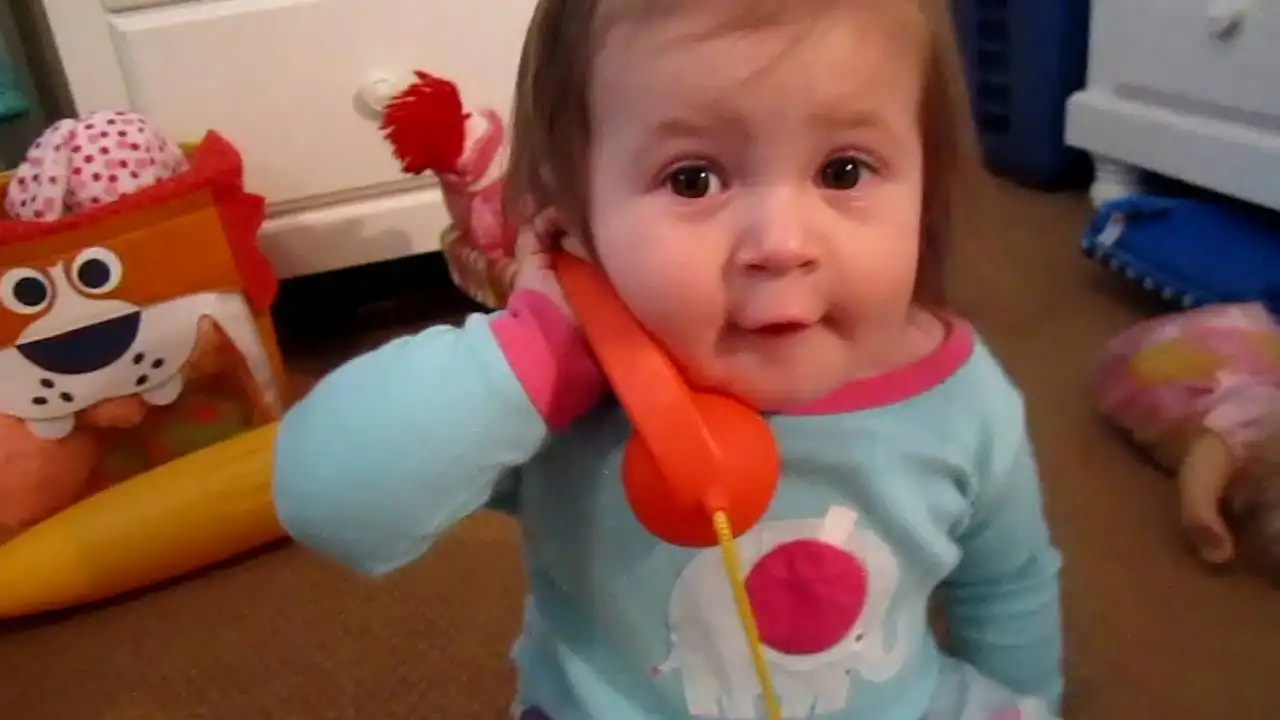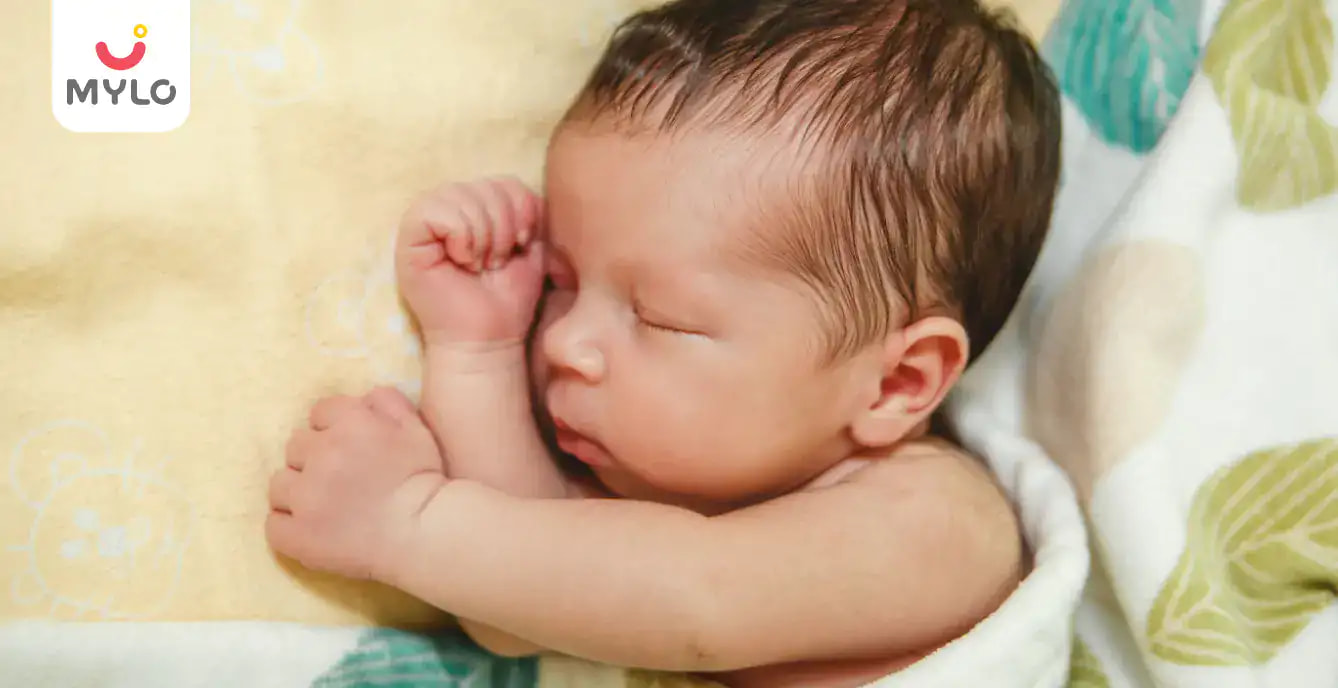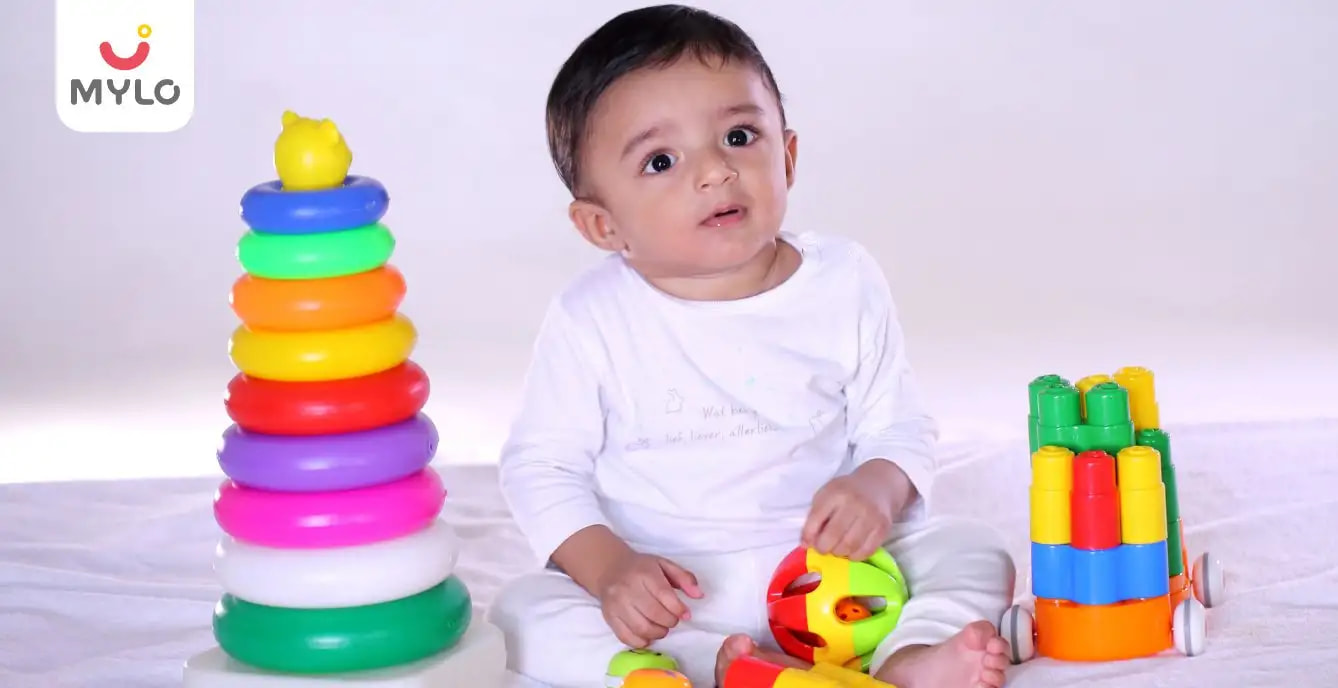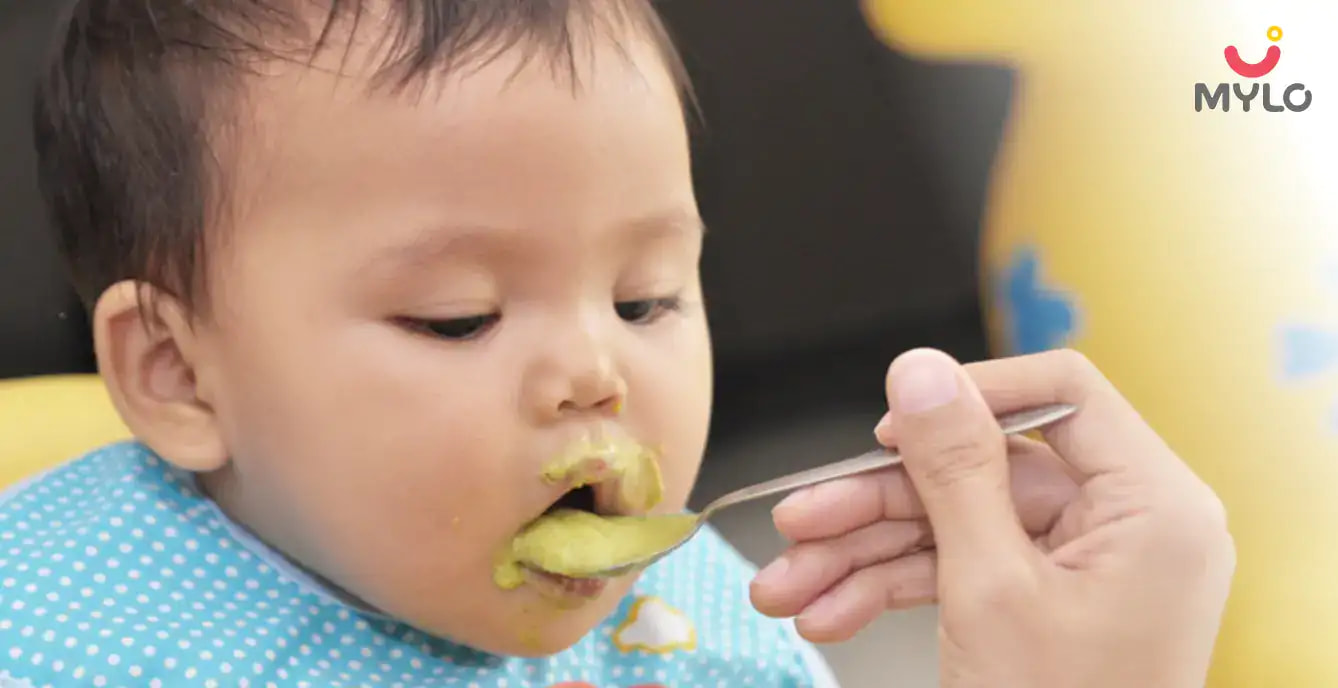Home

Milestones

Till what age do babies typically start talking?
In this Article

Milestones
Till what age do babies typically start talking?
Updated on 6 March 2023
There can be no other sounds as sweet as the babbles of an infant. Most first-time parents look forward to listening to the first word of their baby, who are expected to babble and coo a few sounds as early as they are four months of age. Critical milestones in the baby's language development begin in the first three years of life when the baby's brain is also developing rapidly. While evertime your baby opens his/her mouth you wish to hear mumma/papa but let them grow at their own pace and do not force anything on your little munchkin.
Babies typically begin to say their first words between 10 and 14 months of age, although some babies may begin to speak as early as six months or as late as 18 months. By age 2, most children have a vocabulary of several hundred words and can communicate using simple sentences. However, it's important to note that every child develops at their own pace, and some children may reach developmental milestones earlier or later than others. It's also important for parents to talk and read to their babies from an early age to promote language development.
Babies' first words
The first words a baby says can vary widely and depend on various factors, including the child's environment, exposure to language, and individual development. Some common first words that babies may say include "mama," "dada," "bye-bye," "hi," "no," "uh-oh," and "ball." However, it's important to note that not all babies will say these words as their first words, and some may develop their own unique first words based on their experiences and environment. Additionally, some babies may only say their first words after their first birthday, which is also considered normal.
When to expect the baby's first word:
The baby begins to show grimaces, squirms, and cries soon after birth to express their needs, emotions, and frustration. Parents also learn to interpret and understand the different sounds their babies can make. The different milestones that pertain to baby's talks are as follows.
At three months: The baby turns towards voices, music, and sound. By the end of three months, the baby begins to coo happy and gently repetitive sounds.
At six months: By six months, the baby babbles monosyllables such as ba-ba, dada, etc. These are random syllables with no real meaning. They respond to their name and recognize their mother tongue.
At nine months: The baby begins to use a range of consonant sounds with different tones of voice.
At 12-18 months: The baby speaks many simple words and can recognize people and things by name. They can attempt simple words like mama, dada, etc. They repeat words and sounds they hear, but not in a meaningful way.
By two years: The baby can string together a few words and form short phrases of two to four words. They learn and understand the meanings of abstract things like 'mine.'
By three years: The baby's vocabulary expands tremendously, and they learn to speak many new words in their mother tongue.
The involvement of the parents and other significant people in the family plays a major role in the child's language development. Kids of active parents learn to speak earlier and better than other babies.
Also read: Top 5 Ways in Which Baby Toys Help in Your Little One’s Growth & Development
How to develop speech in babies?
There are several ways you can encourage babies to speak more:
-
Talk to them often: Babies learn language by listening to and mimicking the sounds they hear. Talk to your baby often, using simple words and sentences, and encourage them to respond with babbling and other sounds.
-
Read to them: Reading to your baby can help them develop language and communication skills. Choose books with simple words and colorful pictures, and engage with your baby by pointing to pictures and asking them questions.
-
Play with them: Playtime is a great opportunity to encourage your baby to speak more. Use simple words to describe the toys and objects you are playing with, and encourage your baby to respond with their sounds and words.
-
Sing songs and nursery rhymes: Singing to your baby can help them learn new words and sounds and can also be a fun way to bond with your baby.
-
Provide a language-rich environment: Expose your baby to different words and sounds by talking to them throughout the day, using descriptive words to label objects and actions, and providing opportunities for them to interact with other children and adults.
Remember that every baby develops at their own pace, and it's important to be patient and supportive as they learn and grow.



Written by
Ravish Goyal
Official account of Mylo Editor
Read MoreGet baby's diet chart, and growth tips

Related Articles
Related Questions
Influenza and boostrix injection kisiko laga hai kya 8 month pregnancy me and q lagta hai ye plz reply me

Hai.... My last period was in feb 24. I tested in 40 th day morning 3:30 .. That is faint line .. I conculed mylo thz app also.... And I asked tha dr wait for 3 to 5 days ... Im also waiting ... Then I test today 4:15 test is sooooo faint ... And I feel in ma body no pregnancy symptoms. What can I do .

Baby kicks KB Marta hai Plz tell mi

PCOD kya hota hai

How to detect pcos

Related Topics
RECENTLY PUBLISHED ARTICLES
our most recent articles
Hemorroids
Are you Concerned about rectal bleeding in your pregnancy? Here're some relief tips for you!

Illnesses & Infections
Diagnosis and Treatment of Vaginal infections during pregnancy to prevent any complications

Festivals & Celebrations
8 Ways to Empower Women with Digitalisation this International Women's Day

Diet & Nutrition
Navigating Hypothyroidism and Pregnancy: Tips for Expecting Moms

Diet & Nutrition
Top 10 Post-Holi Detox Tips to Cleanse Your Body

Festivals & Celebrations
Holi-Proof Your Skin and Hair with These 10 Natural Tips
- Placenta Abruption: Causes, Symptoms and Treatment
- 8 Holi Dishes That Will Add Flavour to Your Holi Party
- Your Guide to Vitamin C: Benefits, Daily Requirements & Sources
- Foods to Eat & Avoid During the 8th Month of Pregnancy
- Safely Trimming Your Baby's Nails: A Step-by-Step Guide
- Leg Cramps During Pregnancy: Causes, Treatment And Home Remedies
- When is the best time to give your child cow's milk and how to make the switch easier?
- How to Handle Giving Birth to a Baby Alone?
- Can You Get Pregnant During Your Period?
- When to Make an Emergency Doctor Visit During Pregnancy?
- How to Help Your Toddler Overcome their Shyness?
- Piercing Your Baby's Ears: Risks & Precautions
- Which Food items to Include & Avoid During Third Trimester of Pregnancy for optimum nutrition?
- Breech Baby: Causes, Risks, Flipping & Delivery


AWARDS AND RECOGNITION

Mylo wins Forbes D2C Disruptor award

Mylo wins The Economic Times Promising Brands 2022
AS SEEN IN

- Mylo Care: Effective and science-backed personal care and wellness solutions for a joyful you.
- Mylo Baby: Science-backed, gentle and effective personal care & hygiene range for your little one.
- Mylo Community: Trusted and empathetic community of 10mn+ parents and experts.
Product Categories
baby carrier | baby soap | baby wipes | stretch marks cream | baby cream | baby shampoo | baby massage oil | baby hair oil | stretch marks oil | baby body wash | baby powder | baby lotion | diaper rash cream | newborn diapers | teether | baby kajal | baby diapers | cloth diapers |








